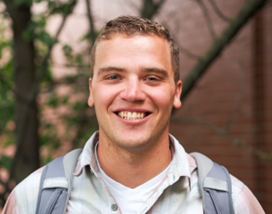
Stream crossing (bridges, culverts, etc.) in the Pacific Northwest (PNW) are abundant due to the high level of development of the region. Culverts have long been the stream crossing of choice due to their easy instillation and cost-effectiveness. Over time, culverts can become fish barriers for a variety of reasons and there are now nearly 2000 fish barriers, most of which are culverts. Washington state acted in 1999 with the design policy of stream simulation design process by creating a more natural streambed throughout the crossing. The designs must meet performance criteria, while balancing ecosystem factors that will support fish movement through the crossing, but there was little specific guidance on how to make designs that achieve these objectives. This research investigated the use of meandering bars with organic material in a simulated streambed inside a laboratory flume to assess how best to utilize the material. The main channel feature is a meandering bar sequence composed mainly of coarse material. Organic material in the form of slash was placed on the upstream side of the bars and a root wads were also. The various designs were subjected to three flood frequency events: ten, twenty-five and fifty-year. Streambed elevation change relative to the initial channel was used to quantify channel stability. A handheld 3D scanner (EinScan-H) was used to capture high-resolution (~1mm) of the streambed elevation, providing millions of data points per trial. The research showed that the addition of organic material (root wad and slash) will increase channel stability at all the slopes tested, though to varying degrees. The design with slash at a three percent slope reduced sediment transport the most after the ten-year event while the root wad design was more effective for the larger events. The results suggest that slash or root wads in the meandering bar design can increase lifespan of the design and maintain the channel shape for fish passage.
Tyler Fouty is a Ph.D. Candidate at Washington State University in the Civil and Environmental Engineering Department under the supervision of Prof. Nicholas Engdahl. Fouty has a bachelor’s degree in Hydrology and a master’s in civil engineering. His research areas are hydraulics, hydrology, and particle transport, and his Ph.D. topic involves the mobility of microplastic fibers in and over porous media.

